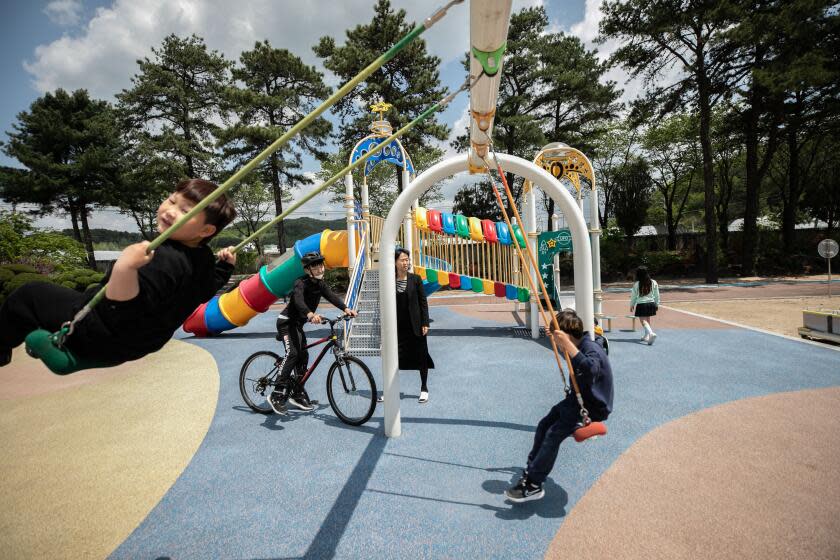Facing a 'national emergency,' South Korea president announces new ministry to boost birth rate

South Korean President Yoon Suk-yeol announced Thursday that he would create a new government ministry to tackle the country’s low birth rate, which he called “a national emergency.”
The ministry will serve as a specialized “control tower” that will “establish policies that span education, labor and welfare” — one better suited to address a problem that has so far been addressed largely with piecemeal measures.
“It will be more than just welfare policy, but a national agenda,” Yoon said at a news conference marking the end of his second year in office.
Last year’s fertility rate — the number of children a woman is expected to have over her lifetime on average — was among the lowest in the world, at 0.72, far short of the 2.1 needed to maintain a stable population. That figure is expected to slide to 0.68 by the end of the year, according to the government.
In a country of 50 million, about 230,000 babies were born last year, and if nothing changes the population will drop dramatically over the next several decades. The situation is increasingly perceived by the public and politicians as an existential threat.
The Times has been covering the crisis:
Read more: One sign of South Korea's population crisis: Rural elementary schools are running out of children
Read more: Facing a labor crisis, South Korea turns to migrants. Why are they more likely to die on the job?
Read more: Korea's army of senior citizens ready for battle. 'I don’t remember the rifles being so heavy'
Read more: Inspired by reality TV, Buddhist monks become matchmakers
The government has spent more than $200 billion in the last 16 years to counter these trends, without much success.
With fewer workers to pay into it, the country’s $764-billion pension fund is estimated to dry up by 2054.
To counter the labor shortages already being felt in sectors such as agriculture and manufacturing, the government has been admitting migrant workers from developing countries such as Nepal and Indonesia in record numbers. With an ever-shrinking pool of young men to draw from, the military is trying to reduce its reliance on human soldiers.
Some of the government’s birth-boosting proposals have raised eyebrows.
Last year, Yoon’s People Power Party reportedly discussed plans to make South Korean men who fathered three children before the age of 30 exempt from mandatory military service — an idea seen as out of touch with the high costs of raising a child.
And despite the fact that poor work-life balance for young South Koreans is frequently cited as one of the many causes turning them away from parenthood, the Yoon administration once sparked outrage for proposing a 69-hour work week.
This story originally appeared in Los Angeles Times.


